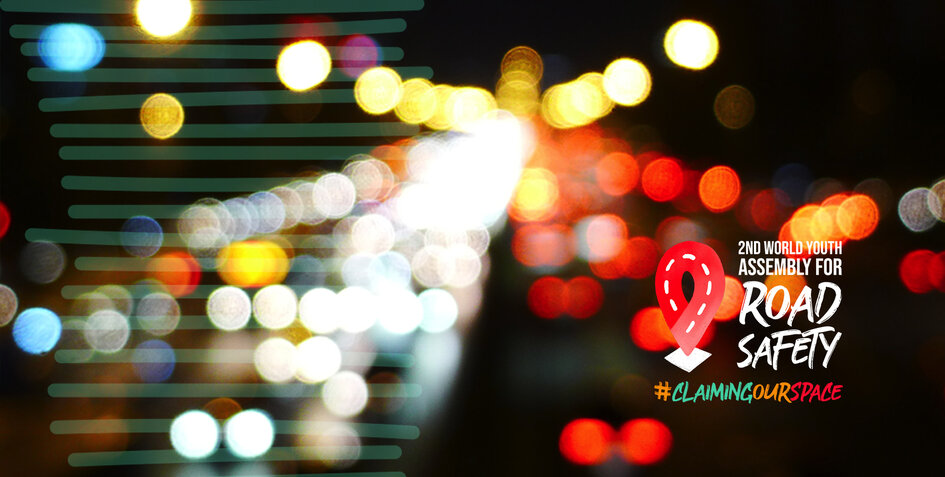
Young leaders from 75 countries to say “enough is enough” to road crashes at WYA
What is the price young people have to pay for mobility? Over one thousand youth are killed every day globally because of road crashes – the most affected are aged 15-29 years old. The 2nd World Youth Assembly (WYA) will engage and involve young leaders from across the world. At the Assembly, they will be inspired and empowered with the skills and knowledge needed for them to act on issues anchored in road safety and safe mobility.
But this is not just any event. The Assembly is entirely youth-driven and organized by a Global Youth Taskforce of young leaders convened by global NGO YOURS – Youth for Road Safety.

Up to 200 young leaders from more than 75 countries will descend upon Stockholm, all selected for their exemplary leadership activities in the communities. They will engage in a full day of programming including high profile speakers, intergenerational talks, interactive workshops, arts and culture, live performances and action planning. There is also an opportunity to pitch for seed funding for road safety projects.
Through the WYA, youth leaders will adopt a Global Youth Statement on Road Safety that states “enough is enough”. It demands immediate action in protecting young people from this global scourge and expresses their commitment to achieving the goals established in the global agenda.
Young people began engaging their communities through youth consultations in September 2019 and more than 1500 young people in 55 countries spoke up and had their voices heard on safe mobility issues. The youth are calling out to decision-makers to involve them in road safety decision making through meaningful youth participation and stop the ‘business as usual’ approach that is seeing so many youths die every day on the world’s roads.
Young people are not alone in their mission for safe mobility and being supported by major partners including the World Health Organization who is co-sponsor of the event. Main partners include the Michelin Corporate Foundation and the Total Foundation and partners include Fundación MAPFRE and the Volvo Group.
Etienne Krug, Director of the Department of Social Determinants of Health under the World Health Organization says that “Road traffic crashes have become the leading killer of our youth. Young people should therefore be part of addressing this scourge. Inaction and even “business as usual” are not acceptable. We know the solutions and they should be implemented now. The 2nd World Youth Assembly will catalyse the youth movement for road safety, demanding and generating the action needed.”
Philip Legrez, Executive Director of Foundation Michelin, says that “we have always believed in promoting and supporting safe mobility to help people move forwards. It’s at the core of our values and remains deeply engrained in our DNA.”
Maolin Macatangay, a Global Youth Taskforce Member from the Philippines said, “We do not accept that thousands of our peers die on the roads around us every day and we are #ClaimingOurSpace for safe mobility and at the decision-making table to take action and prevent these daily tragedies”.

Manoelle Lepoutre, Managing Director of Foundation Total, says that “Total Foundation is stepping up alongside young people to support them in helping make real change in society. By including them in discussions and decisions, we will be able to find innovative solutions to make mobility safer.
Jesús Monclús, Road Safety and Preventive Area Director of the Fundación MAPFRE, adds that “We need the passion, creativeness and complicity of every single young girl and boy, woman and man, around the world, and in particular that of the young leaders meeting in Sweden with the goal of changing the world.”
President and CEO of the Volvo Group, Martin Lundstedt explains that the “Volvo Group has a vision of zero accidents with Volvo Group products and our commitment for road safety goes beyond just the products. We believe in unleashing the energy, passion and bright ideas of young people to create innovative solutions towards a safer world”.
The Assembly is a mechanism for youth to come together and bring road safety issues from their communities into the spotlight. Now, more than ever, people need to join the conversation on road safety in order to work toward a solution to curb and eliminate the preventable carnage and trauma on our roads.
Let’s start Claiming Our Space for road safety!

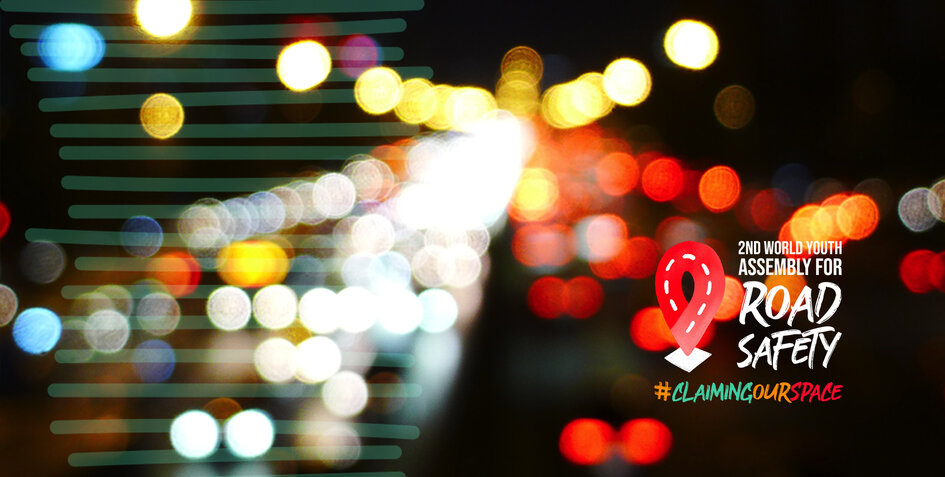

 “When I look back at my own experience speaking at conferences, I was not bold or radical enough. We need to create a sense of urgency by speaking truth to power, making it known that we are frustrated and must hold our leaders accountable, refusing to accept business as usual, and demanding a seat at the table.” Said Floor.
“When I look back at my own experience speaking at conferences, I was not bold or radical enough. We need to create a sense of urgency by speaking truth to power, making it known that we are frustrated and must hold our leaders accountable, refusing to accept business as usual, and demanding a seat at the table.” Said Floor.

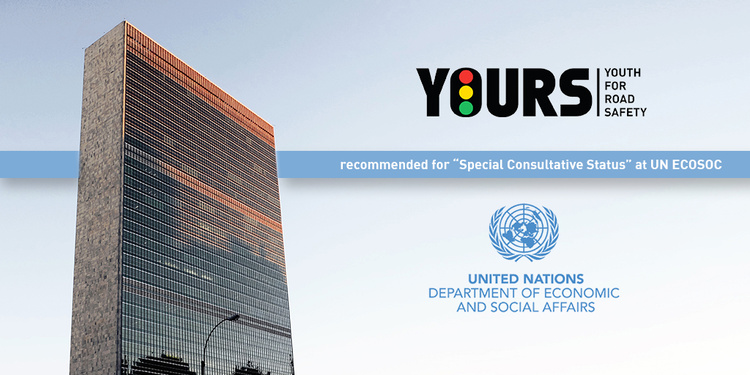



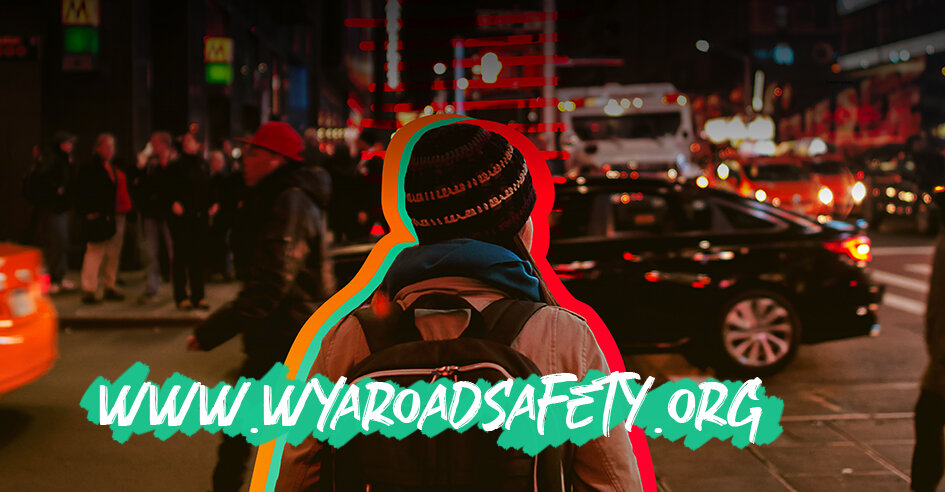





 Every young person attending the Assembly will have engaged with other young people in their communities through youth consultations, so are deeply rooted in their communities and cities, and will act as champions for road safety in their respective countries. They will come from all over the world, and from a range of backgrounds, including civil society, academia, the private sector, and the government sector. As a whole, those attending the Assembly represent different experiences and realities in terms of safer mobility, and represent a collective voice for road safety.
Every young person attending the Assembly will have engaged with other young people in their communities through youth consultations, so are deeply rooted in their communities and cities, and will act as champions for road safety in their respective countries. They will come from all over the world, and from a range of backgrounds, including civil society, academia, the private sector, and the government sector. As a whole, those attending the Assembly represent different experiences and realities in terms of safer mobility, and represent a collective voice for road safety.

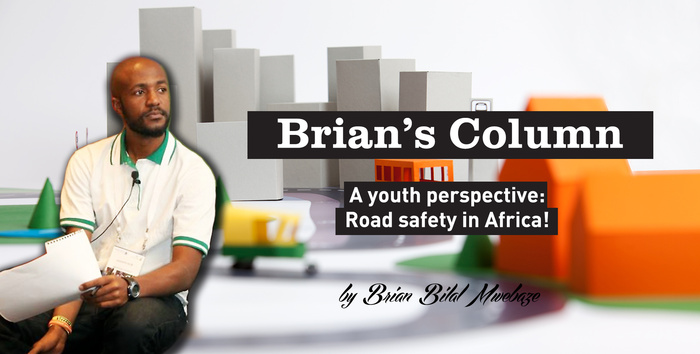
 1. Inexperienced driver’s hands on the steering wheel
1. Inexperienced driver’s hands on the steering wheel 2. Riding or driving with no license
2. Riding or driving with no license 3. Speeding
3. Speeding 4. Miss using helmet and seatbelts.
4. Miss using helmet and seatbelts. 5. Drive/ride/walk while drinking alcohol or drunk.
5. Drive/ride/walk while drinking alcohol or drunk.